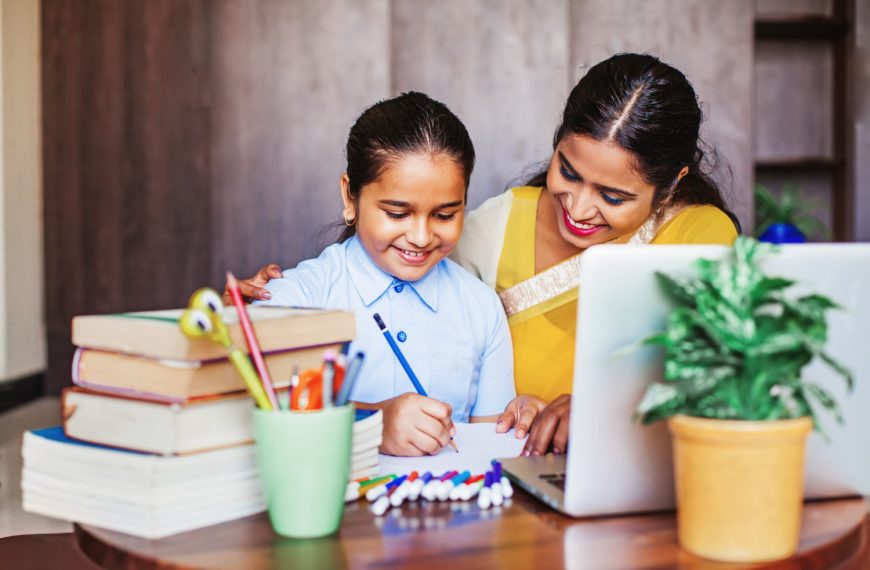In a country as big and diverse as India, the education system inevitably varies from state to state. In some states, school curricula are more progressive than others. In some states, teaching standards are more stringent than others. The quality of education also varies between cities and smaller towns. And all of these factors have a direct impact on parents who might be considering home schooling their child. If you’re thinking about home schooling your child in India – or any other country, for that matter – there are a number of things you’ll need to take into account before making your decision. Is it cheaper? Safer? More productive? Read on to find out everything you need to know about home schooling your child in India and whether or not it’s right for your family.
Why do people choose to home school their kids?
There are a number of factors that might influence a parent’s decision to home school their child. These include: There is no one-size-fits-all solution when it comes to home schooling. It’s a very personal decision, and one that needs to be well-informed.
What’s different about home schooling in India?
Home schooling can take on many forms, depending on the country and culture in which it’s being done. In India, home-schooled children can expect to miss out on many of the same things they would if they were in a traditional classroom setting. This includes field trips, sports, extracurricular activities, and the chance to interact with their peers. Depending on the age of your child, however, these things might be inappropriate to be around anyway. Home schooling in India is also different in that parents who choose to home school their child must take on the role of both the teacher and the administrator. This means that you’ll need to create your own curriculum and find your own sources for official papers such as a graduation certificate.
Why you should think twice before deciding to home school your child
As we’ve seen above, there are a lot of benefits to home schooling your child. However, there are some potential downsides worth considering, too. These include: The quality of education that your child is receiving is entirely up to you. This means that if you don’t have the skills to adequately teach your child, or if you don’t have the time – or the money – to find educational resources, your child will suffer as a result. As we also discussed above, home schooling can also make socializing with other children more difficult. This can have a major effect on your child both now and later in life.
The benefits of home schooling your child in India
As we previously discussed, there are many benefits to choosing to home school your child. However, there are a few advantages to home schooling your child in India that are worth highlighting. These include: The quality of education offered by schools in India varies quite significantly. If you live in a more progressive part of the country, you’re likely to have access to a better quality of education than if you live elsewhere. This can make home schooling a more viable option if you think your child’s needs aren’t being met in the classroom. If you live in a smaller town, the quality of education can vary even more drastically between schools. This is because smaller schools often have fewer resources available to them. Home schooling can help to minimize these differences, but it does come with certain challenges as well.
How to go about home schooling your child in India?
No two people ever home school in exactly the same way, and there are as many different ways of doing it as there are people who do it. There are, however, some general guidelines you can follow when home schooling your child in India that will help you to make the most of the experience. These include: The first thing you need to do if you’re thinking about home schooling your child is to find out as much information as you can about the process. There are a number of online resources available to parents who are home schooling, and they’re a great place to start. Next, you’ll need to decide what subjects your child will be studying and how much time they will need to spend on each one. This can be a little tricky if you’re not already familiar with the curriculum. If you’re not, we recommend that you start reading up on the subjects that you think your child should be studying as soon as possible. The sooner you know what you need to cover, the easier it will be to find the time to do it.
Final words: Is Home Schooling the Right Choice for You and Your Child?
Home schooling your child can be a great way to provide them with a quality education that’s tailored to their needs. However, it’s important to make sure that you’re prepared for the challenges that come with it. Even if you pick the perfect curriculum, there’s no guarantee your child will actually do the work. If you’re not strict enough, or if your child doesn’t respect your authority, they may not have the motivation to finish their work on time. Even if you are strict enough, home schooling can be a very time-consuming process. You also need to make sure that your child is getting the socialization they need to be a well-rounded person. If you’ve decided that home schooling is the best option for you and your child, there’s no better time than the present to get started.
















